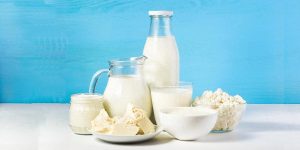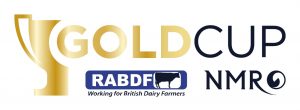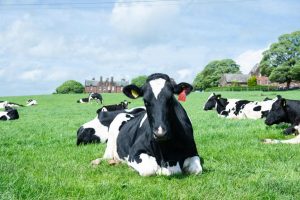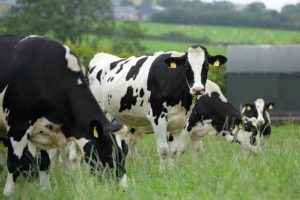
Instead of hanging out with venture capitalists or tech entrepreneurs as they used to, brothers Dylan and Will McMahon, and their father, Ross, headed to the Liverpool baby and toddler show last weekend to talk to parents about infant formula.
Their family business, Kendal Nutricare, founded in 2015, is the only British baby milk producer, competing against multinational food giants Danone and Nestlé. UK market share for their Kendamil brand has jumped from 0.5% in April 2020 to more than 10% now.
Royal endorsements have helped: the Duke and Duchess of Cambridge used its follow-on milk and porridge when they were weaning Prince Louis, and Kendamil had a further boost last month when it contributed 2m cans to Operation Fly Formula, Joe Biden’s presidential mission to tackle a sudden baby milk shortage in the US. The brothers hope to convert the temporary waiver secured from the US regulator into permanent approval to sell to American parents.
Working together seven days a week “makes for interesting Christmas dinners,” says Dylan, head of growth at the Lake District-based business. “Friday-night beers now mean different conversations from what we were having a couple of years ago – less talk about the Formula One, more talk about formula generally.”
Family Long-term partner Hannah.
Education De La Salle College, Dundalk; University College Dublin (business & law).
Pay £50,000
Last holiday A long weekend in Marrakech just as Eid al-Fitr began.
Best advice he’s been given “When things gets tough, think what a great story it will make. That’s from Dad.”
Biggest career mistake “I tried my hand at investment banking but swiftly realised (as did my colleagues) that my talents were more in people than PowerPoint.”
Word he overuses “I’m told I caveat virtually everything I say, but not sure how to express that in a word – so maybe ‘sorry.’”
How he relaxes “Taking long walks or getting lost in YouTube wormholes.”
Will McMahon
Age 31
Family Long-term partner Sara.
Education De La Salle College, Dundalk; University College, Dublin (economics and finance); Stanford University (MBA).
Pay £50,000
Last holiday “A trip to Portugal with friends.”
Best advice I’ve been given “A lecturer told me ‘Good outcomes come from having appealing alternatives’.”
Biggest career mistake Not knowing how to say ‘no’ in my first job. Skinny suit trousers a close runner-up.
Word he overuses “My brother tells me I use ‘opine’ and it sounds ridiculous! But that’s his opinion.”
How he relaxes “I’m mildly obsessed with podcast The Rest Is History – and lazy Saturdays with friends.”
His older brother Will, who is commercial director, chips in: “There’s definitely ups and downs. It’s as weird for Ross as it’s weird for us. How do you work with your sons? You remember when they were in nappies and suddenly they are debating with you on a decision.”
The business has won a Queen’s award for international trade, and for our interview, the brothers are wearing shirts with a crown emblazoned above the Kendamil logo.
The business was born seven years ago when Ross bought a loss-making factory site in Cumbria from Heinz for £1. After the 2008 Chinese baby milk scandal – when six infants died from drinking melamine-laced formula – Ross had spotted an opportunity to shake up the sector. Initially, Kendamil was made only for export, particularly to China, but today the UK makes up half of sales. During the pandemic, the company started offering an online subscription and free delivery service, and in the 12 months to March this year, sales reached £34m.
Designed to mimic breast milk by using whole milk as its main ingredient and source of fat, rather than vegetable oils, Kendamil aimed to offer something different in a market dominated by Danone’s Aptamil and Cow & Gate, Nestlé’s SMA, and German-owned Hipp Organic.
Kendamil claims to be the only vegetarian-certified baby formula in the UK, Ireland and parts of Europe. It is also halal and kosher. The milk comes from local farms, including 25 organic farms. Kendamil is also free of palm oil and uses plant-based Omega-3 fat, rather than the more conventional fish oil.
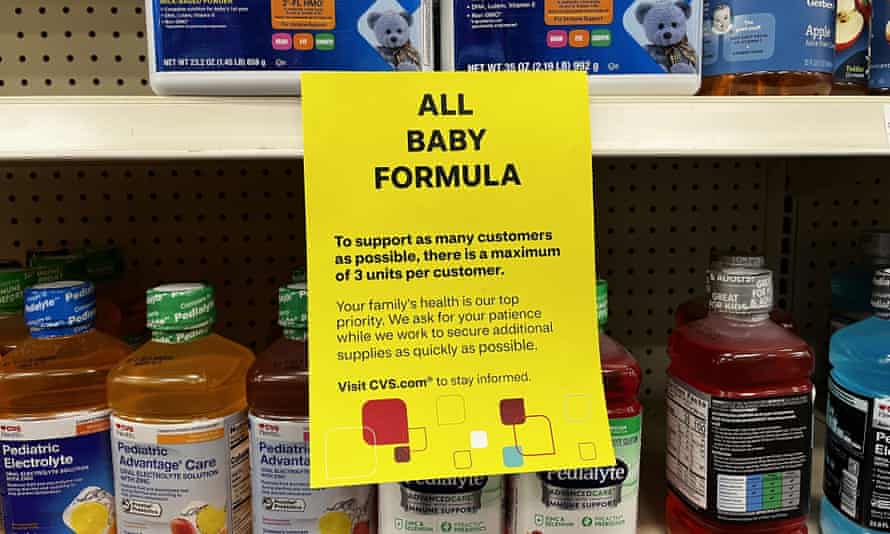
As well as standard and organic cow’s milk formula, Kendal Nutricare products now also include a goat’s milk range and infant pasta and cereal – and are now stocked in major supermarkets.
Ross, who is chief executive, says he sometimes puts a spoonful of their formula in his tea or coffee because “it creams up nicely”. He grew up on a farm in County Monaghan, Ireland, studied agricultural and food science at University College Dublin, and has always worked in the food sector.
Will and Dylan, who had pursued separate careers in finance in London and Silicon Valley respectively, later joined the new venture. The brothers have “always been best mates”, says Will. When Will was doing an MBA at Stanford University in California, Dylan spent a few nights crashing on his floor in a sleeping bag.
Will’s first job was at JP Morgan, where he worked as an investment analyst for two years, and then joined a London-based venture capital startup called Highland Europe. Dylan did an internship at JP Morgan as an analyst, but “learned it wasn’t for me” and went on to work in Dublin for tech firms Nex Group and San Francisco-based Segment, with regular trips to California.
Both were keen to join their father at Kendal. “It felt like something you’d never regret,” says Will. “It has helped us learn to appreciate him [Ross] a bit more. I begrudgingly admit that when it comes to products, he has a very good gut.”
Ross works closely with the research and development team to create new formulations, Dylan is responsible for online and offline growth, including promoting the brand on social media – the company does not run expensive advertising campaigns – and Will is in charge of sales.
Last week, as part of Operation Fly Formula, Kendal gained permission from the US’s Food and Drug Administration (FDA), to send 2m cans of formula – 100 truckloads – across the Atlantic over the next six months. Supply chain bottlenecks in the US became a full-blown shortage this spring after Abbott Laboratories – the country’s biggest producer, with a 40% market share – closed its factory in Michigan and announced a nationwide recall. (That followed a federal investigation into four babies fed on the formula who developed bacterial infections, two of them fatally. Abbott says there is no link between its formula and the illnesses.)
The FDA has temporarily eased import requirements until mid-November, but the McMahons hope they will be able to keep selling their products in the US beyond that date. It is a bold foray into a market that was valued at $3.7bn in 2019 and is forecast to reach $5.8bn by 2027, according to Allied Market Research, as more women join the workforce and most working mothers return to work soon after giving birth.
Ross met Boris Johnson at Downing Street a fortnight ago, and Will says the Department for International Trade has also been very helpful.
The trio plan to more than double the production capacity of the Kendal factory, to 24m cans a year by 2024, to meet demand from the UK, Asia, Europe and now the US. At the moment, it can make up to 10m 900g cans of formula a year.
It has not all been plain sailing, though. The firm had been in negotiations with the FDA for five years before Operation Fly Formula.
“Part of the challenge is that what we want to bring to the US is a formulation that’s fundamentally different,” says Will. “We want to remove things like palm oil and add natural milk fats but certain changes in the FDA’s eyes represent a new concept, and although we have a huge track record in Europe and are in 40 countries, the FDA needed additional time to really analyse the science. But they have since responded positively on that.”




